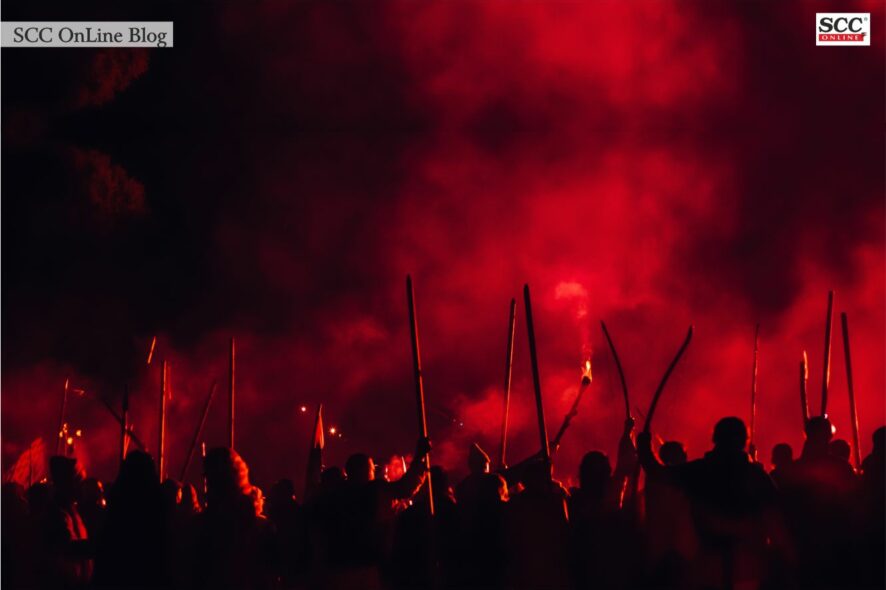Karkardooma Courts, New Delhi: On finding no sufficient evidence, Virender Bhat, ASJ-03, granted bail to the accused persons who looted a medical shop and three houses during the Delhi Riots.
Accused have been charge-sheeted by the police for having committed offences under Sections 147, 148, 149, 188, 120-B, 436, 380, 455 of Penal Code, 1860.
It is alleged that in February 2020 a mob consisting of several 100 rioters who were armed with rods, pipes, stones, petrol bottles, etc. and raising slogans “Jair Shree Ram”, were coming from Ghonda Road towards New Usmanpuri where the complainant Firoz Khan resided and used to run a medical store.
Upon seeing the mob, the complainant locked the main gate of the house and went alongwith his family to the house of his uncle which was in front of his house.
Later, the mob broke open the shutter of the complainant’s medical store and also the main gate of his house and looted the medical store as well as the house and the mob left after vandalizing his house, three adjacent shops and some other adjacent houses.
Two accused were arrested and had admitted their involvement in the incident involved. On the basis of their statement, other accused persons were also arrested.
Analysis, Law and Decision
Bench stated that it needs to be noted that at the time of deciding the charges against the accused, Court was not expected to go deep into the probative value of the material on record.
Court stated that,
What is required to be seen at this stage is whether, the conviction of the accused is reasonably possible if the material on record remains unrebutted or whether there is strong suspicion which may lead the Court to think that there is ground for presuming that the accused has committed the offence.
Since the present matter was the outcome of the riotous incident in which a large number of persons were involved, observation of Supreme Court in Masalti v. State of U.P., AIR 1965 SC 202 become relevant in which the principle was to how a criminal Court should deal with the evidence pertaining to the commission of offence involving in a large number of offenders and large number of victims, had been laid down.
In the present matter, it was evident that from the perusal of the entire charge sheet that there was only one witness who identified the accused as the assailants who were part of the mob.
Charges cannot be framed against the accused upon taking into account the material annexed with the chargesheet on the basis of which there is no possibility of the conviction of the accused at the final stage.
Therefore, there was not sufficient evidence on record on the basis of which charges can be framed against the accused. In view of the said reasoning, bail was granted.
Before parting, Court expressed that,
“Court is not insensitive towards the mental agony and the financial loss suffered by the complainant due to this incident. However, the sensitivity or the emotions alone are not the factors to be taken into consideration by the court while deciding the fate of any accused. These cannot take place of evidence. There should be sufficient and legally admissible evidence on the basis of which charges can be framed against an accused, which is lacking in the instant case.”
Direction
In view of the above-stated facts and circumstances of the case, where accused are being let off not because the incident in question had not happened or the accused appear to have been falsely implicated but merely for the reason that there is no sufficient evidence produced against them, Court directed the DCP North East District conduct an enquiry into the manner in which the investigation was conducted by the IO, in this case, to find out whether or not there had been any deliberate attempt to shield the offenders and submit a report to this Court on the next date of hearing.[State v. Raj Kumar, Sessions Case no. 284 of 2021, decided on 22-11-2021]






